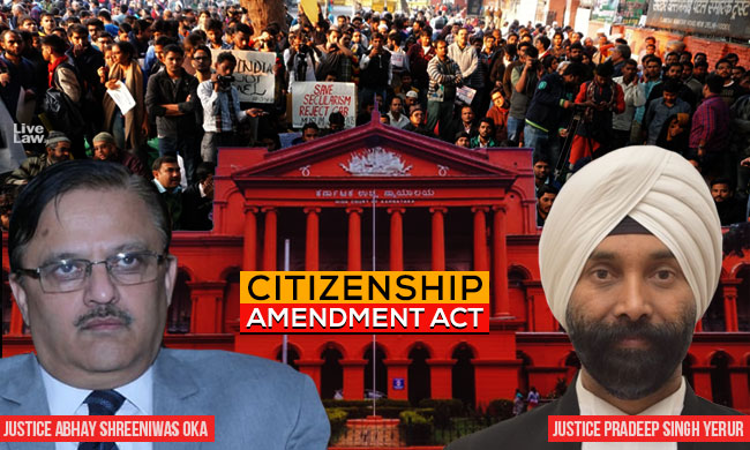CAA Protests: Karnataka HC Says It Will Examine The Legality Of Imposition Of Section 144
Mustafa Plumber
20 Dec 2019 6:29 PM IST

Next Story
20 Dec 2019 6:29 PM IST
Karnataka High Court on Friday said that it will go into the legality of order passed under section 144, by the Police Commmssioner, on December 18, thereby banning all public rallies, which were to be held on December 19, against the Citizenship Amendment Act, in Bengaluru.A bench of Chief Justice Abhay Oka and Justice Pradeep Singh Yerur while hearing a bunch of petitions challenging the...
